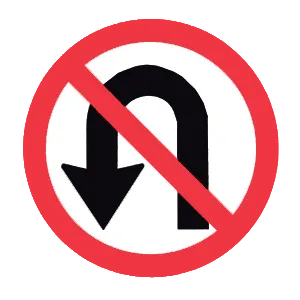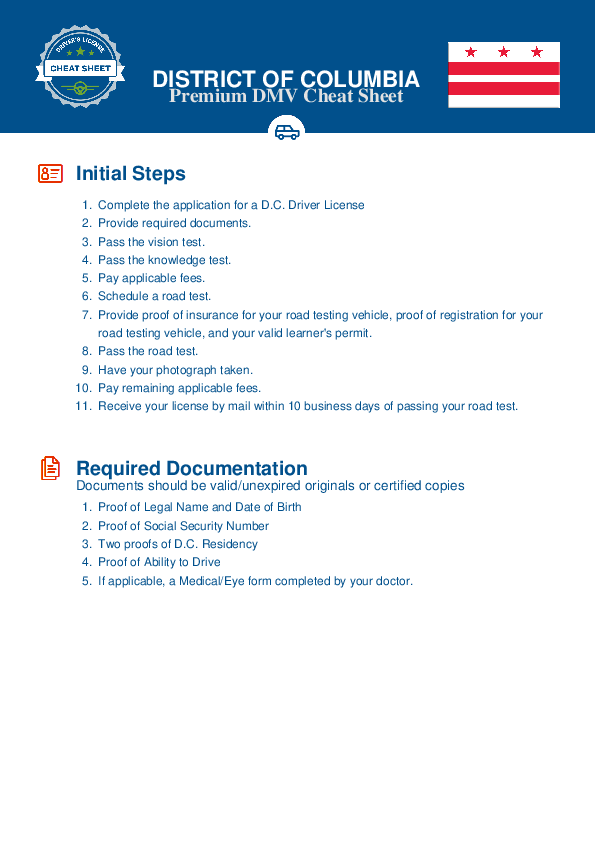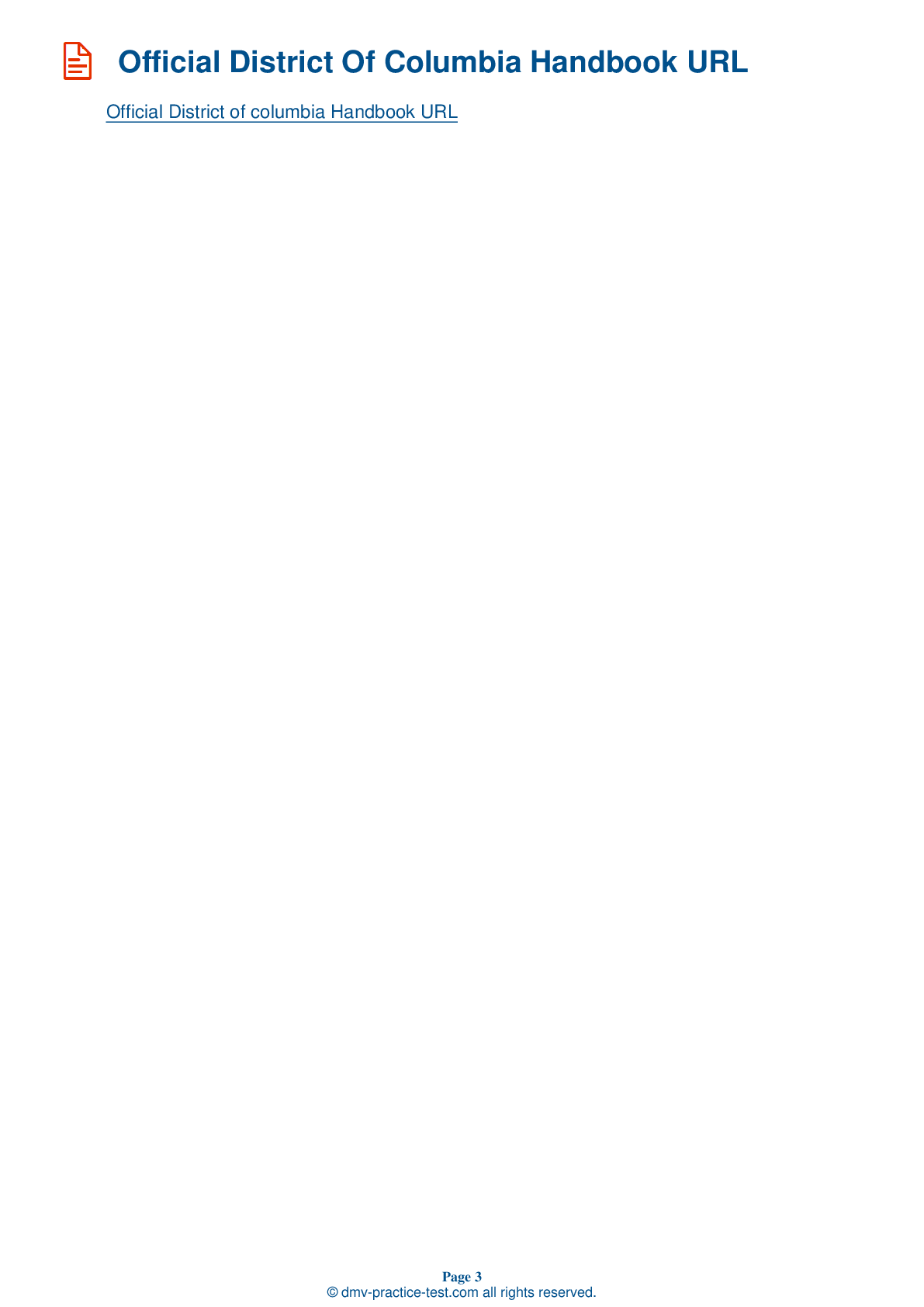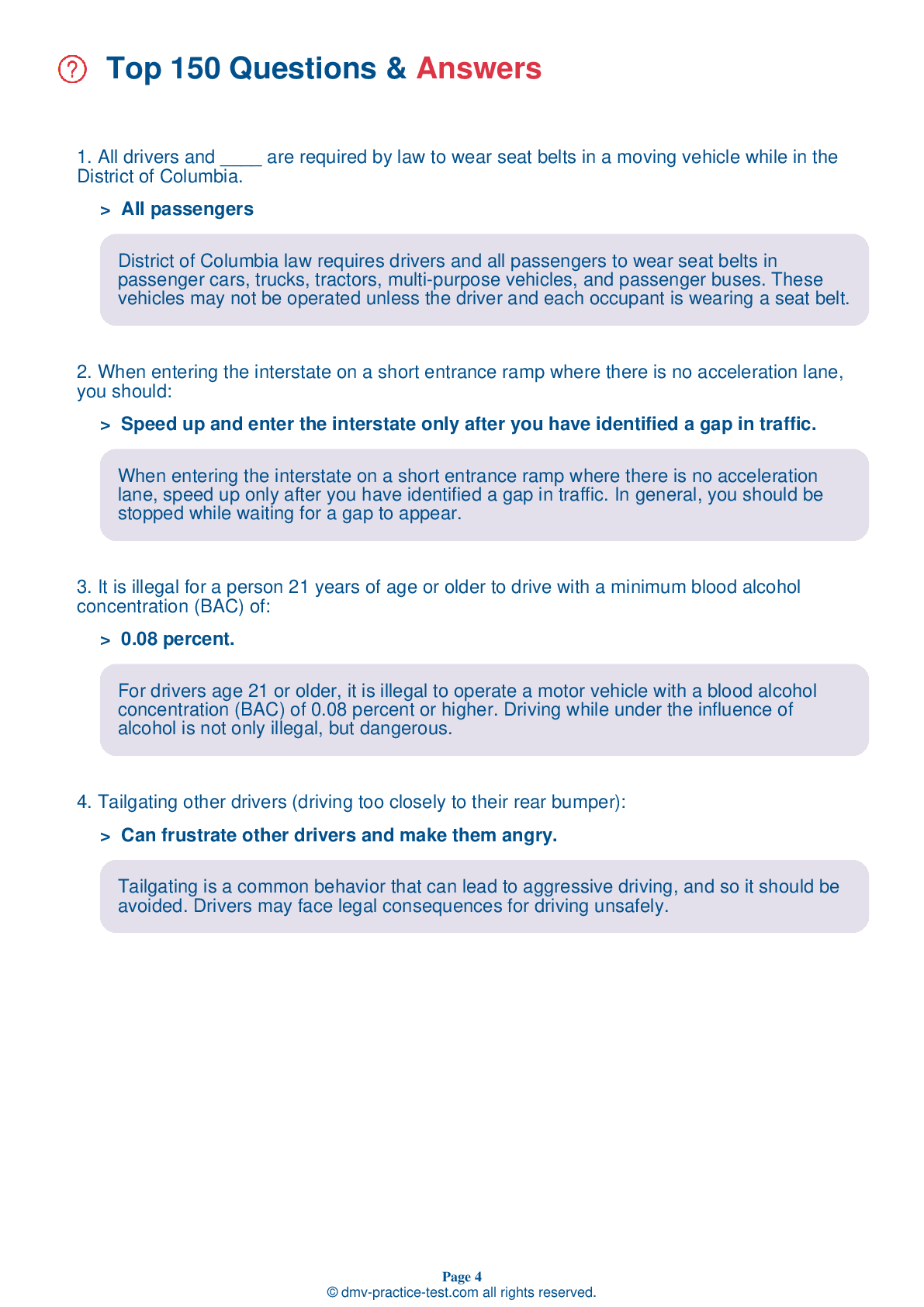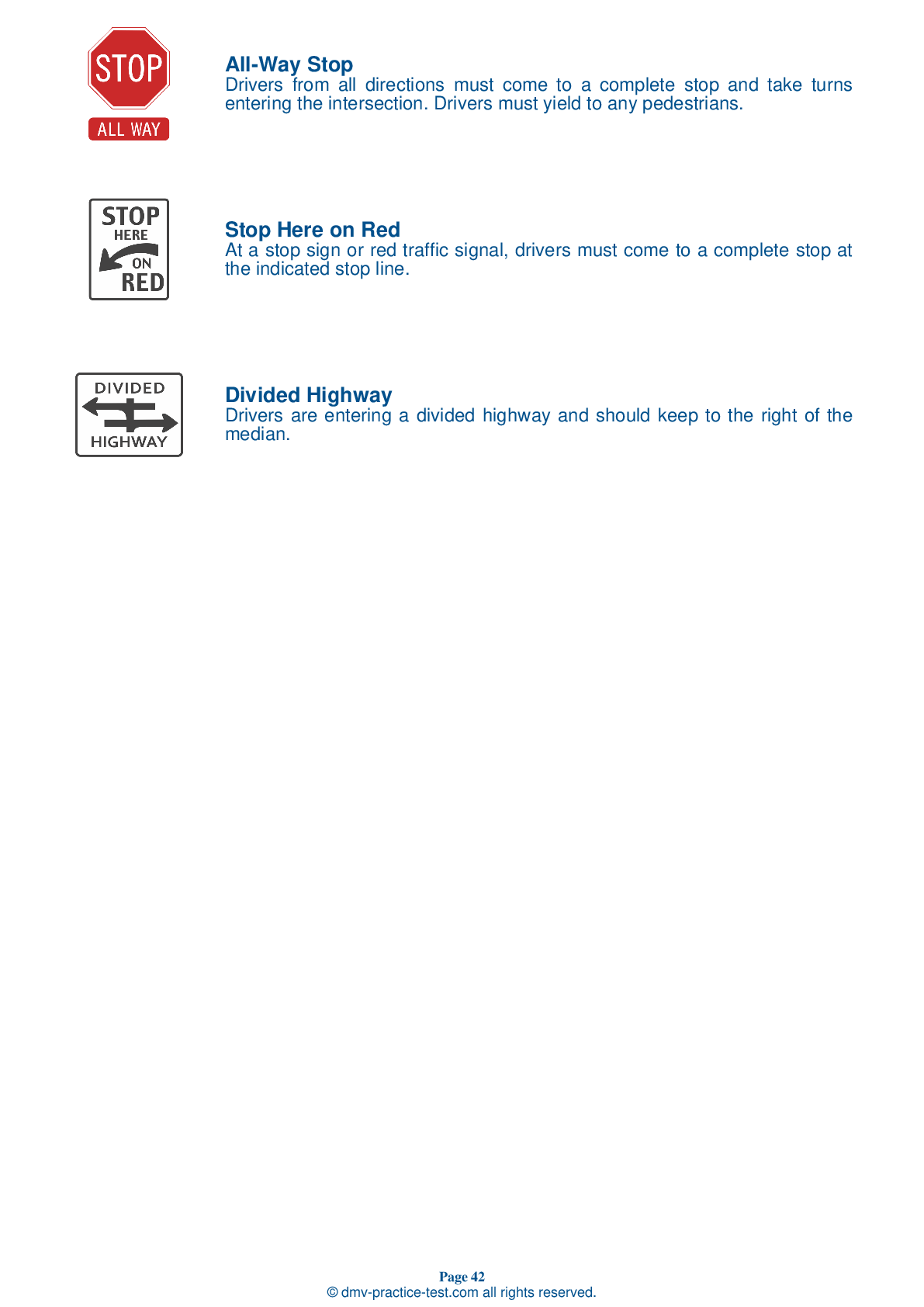FREE District Of Columbia DMV Practice Test #21
This set of District Of Columbia DMV practise tests was been updated for January 2025. It includes questions based on the District Of Columbia Driver Handbook's most significant traffic signs and laws for 2025. Use actual questions that are very similar (often identical!) to the DMV driving permit test and driver's licence exam to study for the DMV driving permit test and driver's licence exam.
On the practise exam, each question gets a tip and explanation to help you remember the concepts. The written component of the official DMV test will include questions about traffic rules, traffic signs, and driving statutes, as well as information from the Driver Handbook.
To achieve the required passing grade, you must correctly answer 20 of the 25 questions. Take our DMV practise exam to help you prepare for your District Of Columbia instruction permit or driver's licence.
The DMV exam is available in several languages.
Using any form of testing help will result in an automatic fail, and the DMV may take further action against your driver's licence, so avoid it.
1 . What is the only way to reduce your blood alcohol concentration (BAC)?
The only method that effectively reduces your BAC is to not drink alcohol for a period of time. Coffee, exercise, and cold showers cannot reduce your BAC or change the effects of alcohol. They can help you remain awake, but they cannot change your BAC or make you sober.
2 . It is illegal for a person 21 years of age or older to drive with a minimum blood alcohol concentration (BAC) of:
For drivers age 21 or older, it is illegal to operate a motor vehicle with a blood alcohol concentration (BAC) of 0.08 percent or higher. Driving while under the influence of alcohol is not only illegal, but dangerous.
3 . A driver does not need to allow as much distance when following a motorcycle as when following a car.
In dry conditions, motorcycles can stop more quickly than cars. Therefore, a driver behind a motorcycle should allow at least three to four seconds of following distance so that the motorcyclist has time to maneuver in an emergency.
4 . The best way to avoid a dangerous situation while driving is to:
Always be aware of what is happening around your vehicle. Constantly observing your surroundings to the front, sides, and rear of your vehicle will help you see problems that may require you to change speed or roadway position.
5 . You need to use extra caution when driving near a pedestrian using a white cane because:
When driving near a blind pedestrian who is carrying a white cane or walking with a guide dog, you must slow down, yield the right-of-way, and then proceed with caution. Be prepared to stop your vehicle in order to prevent injury or danger to the pedestrian.
6 . What are the colors of warning signs indicating upcoming hazards?
Warning signs that indicate approaching hazards are usually yellow with black lettering or symbols. Warning signs in work zones are orange with black lettering or symbols.
7 . A driver who is taking a non-prescription drug should:
Many over-the-counter medications can affect your ability to drive safely. If you take medication, even a remedy for colds or allergies that is not prescribed, check the label for warnings about its effects. If you are unsure, ask your doctor or pharmacist about driving while on the medication.
8 . This sign means:
